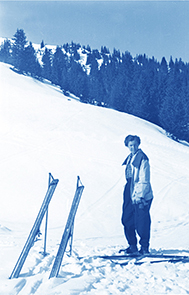 International Summer School on Gender and Science (Web)
International Summer School on Gender and Science (Web)
Time: 29.05.-02.06.2023
Venue: Universidad de Granada, Spain
Proposals due: 30.01.2023
According to the 2021 edition of the European Commission’s She Figures report – the main source of pan-European, comparable statistics on the state of gender equality in research and innovation – there has been considerable progress in gender parity with regard to doctoral graduates in STEM subjects. However, there is still a clear gender gap in the majority of EU countries when it comes to professionals in the sciences, engineering, and information/communication technologies. Despite the persistent efforts of individual universities, university alliances, and the gender policies of the EU, gender equality is not yet fulfilled. His-GenderGap, an International Summer School on Gender and Science, aims to place these efforts in a historical context and create a formative space for early career scholars to exchange their academic work in progress.
Who? Up to 20 early-career scholars (PhD candidates or Postdocs) in gender science studies, science and technology studies, history of science/technology/medicine or any related fields
What is covered? Allowance for inner-European travelling to/from Granada (max. € 425) and pre-booked accommodation at the University of Granada guest residencefor five nights
Who is organizing it? His-GenderGap is organized by Maria Rentetzi (Chair of Science, Technology and Gender Studies, Friedrich-Alexander-Univ. Erlangen-Nürnberg), María Jesus Santesmases (Spanish National Research Council – CSIC, Depart. de Ciencia, Tecnología y Sociedad), and Ágata Ignaciuk, (Univ. of Granada – Department of Pathological Anatomy and the History of Science & Women’s and Gender Studies Institute)

 Cyril Schäublin, CH 2022, 93 Min., Schweizerdeutsch, Französisch, Russisch: Omd/eU
Cyril Schäublin, CH 2022, 93 Min., Schweizerdeutsch, Französisch, Russisch: Omd/eU
 Workers of the World: International Journal on Strikes and Social Conflict
Workers of the World: International Journal on Strikes and Social Conflict